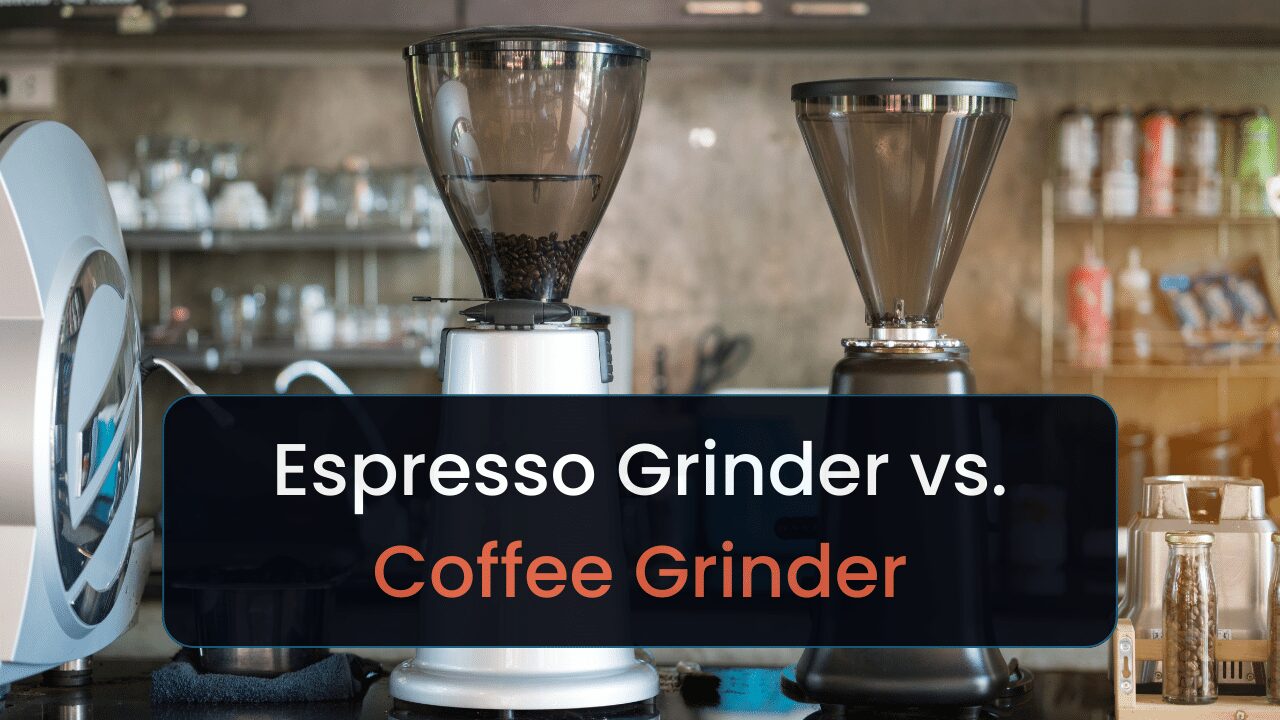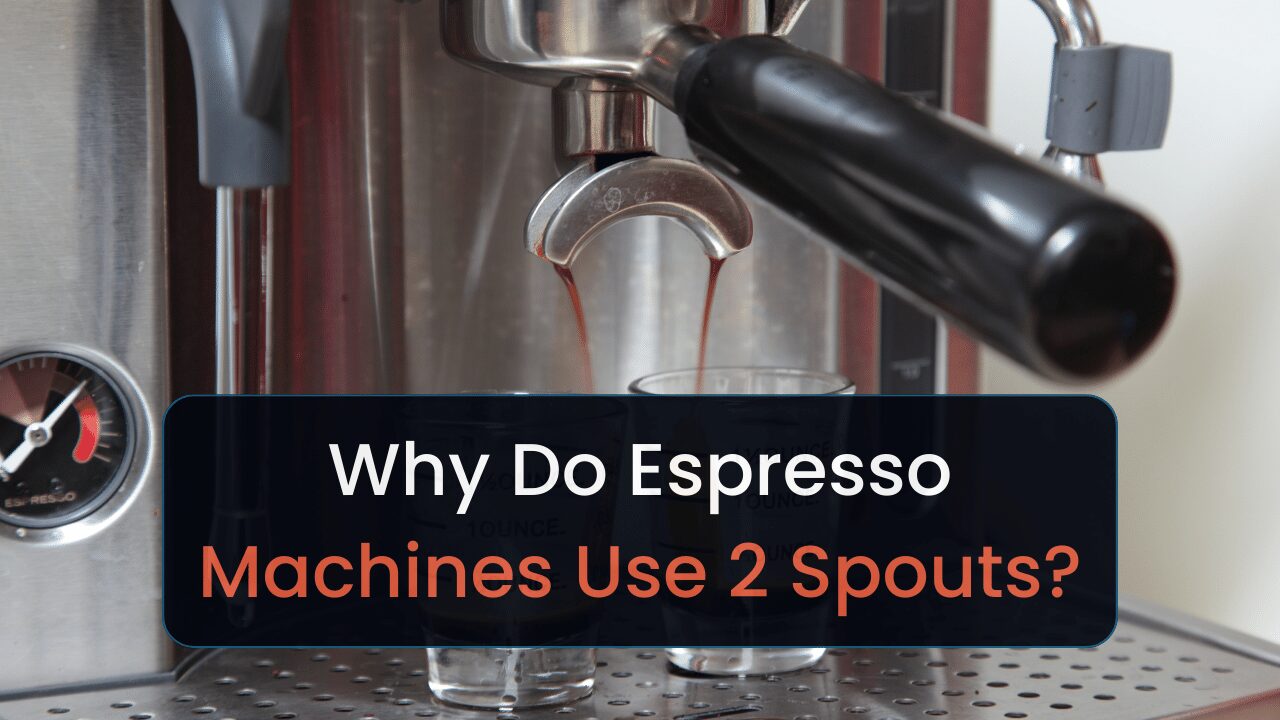To select the best coffee beans possible, I want to know everything about them. Including fair trade vs. direct trade coffee. That’s why I wrote this guide.
Here’s what you’ll learn:
Let’s learn.
Key Takeaways
- Fair trade coffee are beans made from farmers that receive fair wages & work in safe work conditions.
- The highest percentage of fair trade beans come from Brazil.
- Manufacturers must receive certification to have the “fair trade” label.
- Identify fair trade coffee by looking for fair trade certification logos.
What Is Fair Trade Coffee?
Fair Trade coffee ensures that coffee farmers and workers receive fair wages and work in safe conditions. They also engage in environmentally sustainable practices.
Here’s a closer look at its key aspects:
- Fair wages: Fair trade coffee guarantees farmers a minimum price for coffee beans.
- This helps protect them from market fluctuations & ensures they can cover their production costs.
- Safe working conditions: Fair trade-certified farms must adhere to strict guidelines.
- These regard to worker safety, which includes providing protective gear & prohibiting child labor.
- Environmental sustainability: Fair trade coffee farms must use responsible practices.
- These include reducing water use, minimizing chemical pesticides, & preserving biodiversity.
- Community development: A part of fair trade premiums goes toward community development projects.
- Examples include schools, healthcare, & infrastructure, which benefit the farmers & their families.
Let’s move on to history.
History of Fair Trade Coffee
Before fair trade, the International Coffee Organization regulated prices. It did this according to the regulations of the International Coffee Agreement of 1962. This agreement limits the amount of coffee traded between countries, so there would be no excess supply & consequent drop in price.
Here is a brief history of fair trade coffee:
- 1988: The Fair trade certification came to life following a coffee crisis in which the coffee supply exceeded the demand.
- The fair trade certification aimed to raise coffee prices to ensure growers sufficient wages.
- 1992: The CAFOD established the Fairtrade Foundation.
- CAFOD is Christian Aid, Oxfam, Traidcraft, the World Development Movement.
- 1994: The first Fairtrade-certified product, Green & Black’s Maya Gold Chocolate made with cocoa from Belize released.
- Followed shortly after by Cafédirect coffee, Percol coffee & Clipper tea.
Let’s learn where it comes from.
Where Fair Trade Coffee Comes From
Fair Trade coffee comes from various countries globally, primarily in Latin America, Africa, and Asia.
Here’s a table showing some top fair trade coffee-producing countries and the percentage of production they account for:
| Country | Percentage of Production |
| Brazil | 13% |
| Vietnam | 5% |
| Honduras | 8% |
| Peru | 10% |
| Colombia | 12% |
| Indonesia | 7% |
List of some countries where some fair trade coffee originates.
As you can see, Brazil, Colombia, and Peru lead fair trade coffee production.
Starbucks, a major coffee industry player, has also committed to sourcing fair trade coffee [1]. Helping to increase the demand for ethically-produced beans.
Benefits of Fair Trade Coffee
Let’s explore the benefits of fair trade coffee:
| Benefits of Fair Trade Coffee | How Fair Trade Coffee Helps |
| Economic benefits for farmers | Fair trade farmers are always guaranteed a fair price for their harvest. |
| Fair prices & minimum price guarantee | The Fairtrade Minimum Price is a safety net for farmers facing plunging coffee prices [2]. |
| Community development premiums | Coffee farmers receive a Fairtrade Premium – an extra sum paid on top of the selling price. |
| Access to credit & financial resources | Companies & traders must adopt policies like sharing sourcing plans. |
| Social & community benefits | Smallholder farmers can organize & negotiate better terms of trade & reach broader markets. |
| Improved living & working conditions | Workers, organizations & communities involved in the production to receive a living wage. |
| Gender equality & women’s empowerment | Fairtrade supports women coffee growers to become leaders & entrepreneurs. |
| Child labor prevention | Fair Labor Conditions are one of the benefits of fair trade coffee. |
| Sustainable farming practices | Helps protect the ecosystem in which coffee is grown. |
| Biodiversity & habitat conservation | Help protect biodiversity & habitat conservation. |
| Reduced use of harmful chemicals | Often grown & harvested free from agrochemicals & harmful GMOs. |
List of benefits pertaining to fair trade coffee.
Fair Trade Coffee vs. Other Sustainable Coffee Certifications
Regarding sustainable coffee certifications, there’s more than just fair trade.
In this section, we’ll explore some leading certifications in the coffee industry. Then discuss how they compare and complement each other.
1. Organic Coffee Certification
Some key points about organic certification:
- Governed by the USDA (United States Department of Agriculture)
- Requires at least 3 years of organic farming practices
- Strict guidelines for soil management & pest control
This certification ensures farmers grow coffee without the following:
- Synthetic pesticides
- Herbicides
- Fertilizers
- GMOs (genetically modified organisms).
The focus is on environmentally friendly farming practices, promoting soil health and biodiversity.
2. Rainforest Alliance Certification
Some highlights of Rainforest Alliance Certification:
- Holistic approach to sustainability
- Emphasizes forest conservation & habitat protection
- Encourages fair labor practices & community development
Rainforest Alliance Certification focuses on conserving biodiversity and promoting sustainable livelihoods for farmers. This certification addresses environmental, social, and economic sustainability.
An example of how the Rainforest Alliance mitigates environmental issues includes preventing cropland expansion into forests. This action, in turn, helps protect the forests’ soils and waterways [3].
3. Bird Friendly Coffee Certification
Key aspects of Bird Friendly Certification:
- Requires organic certification as a prerequisite
- Ensures shade-grown coffee farming to maintain bird habitats
- Aims to protect migratory bird populations
Developed by the Smithsonian Migratory Bird Center, this targets preserving bird habitats [4]. It does so by promoting shade-grown coffee farming practices. This certification is unique in its focus on bird conservation.
4. Comparison & Complementary Nature of Certifications
Each certification has a unique focus. But they all contribute to the greater goal of sustainable coffee production.
Here’s a comparison:
| Certification | Main Focus | Secondary Focuses |
| Organic | Environmentally friendly farming practices | Soil health, biodiversity |
| Rainforest Alliance | Biodiversity conservation | Social & economic sustainability |
| Bird Friendly | Bird habitat preservation | Organic & shade-grown practices |
Many types of coffee fair trade coffee certifications compared.
These certifications complement each other in several ways:
- Organic certification provides a solid foundation for sustainable farming practices.
- Rainforest Alliance & Bird Friendly certifications build on organic principles.
- They also add more layers of environmental protection.
- By choosing coffee with many certifications, you support a wide range of sustainability efforts.
When buying sustainable coffee, consider the certifications that best align with your values. Let’s move on to the certification process.
Fair Trade Certification Process
Let’s check out the organizations involved in fair trade certification. And we’ll explore some criteria they use to certify coffee producers.
1. Organizations Involved in Fair Trade Certification
Several organizations play a significant role in the fair trade certification process, including:
- Fairtrade International (FLO)
- Fair Trade USA
- Fair Trade Federation
These organizations have varying focuses and standards. But they all share a common goal: to promote fair and sustainable trade practices.
1. Fairtrade International (FLO)
FLO brings together 20 national organizations from Asia, Africa, Latin America, and the Caribbean [5]. Its mission is to empower small-scale workers by fostering better trading conditions.
FLO sets international Fairtrade standards for various products. Including coffee, and supports Fairtrade-certified producer organizations. It also advocates for fair trade policies at the international level. Raising awareness about the importance of ethical and sustainable trade.
2. Fair Trade USA
Fair Trade USA focuses on the North American market. It operates independently of Fairtrade International.
Fair Trade USA empowers farmers by providing the following:
- Resources & training to improve their businesses
- Build community infrastructure
- Enhance their living conditions
- Ensuring a sustainable future for all
3. Fair Trade Federation (FTF)
It aims to build trade partnerships that create opportunities for economically disadvantaged farmers.
Unlike FLO and fair trade USA, FTF focuses on the holistic approach of its member businesses. Ensuring their commitment to fair trade principles throughout their operation.
The FTF membership process is rigorous. Businesses must prove their dedication to the following:
- Fair wages
- Safe working conditions
- Environmental sustainability
- Transparent supply chains
Thus promoting a more ethical and responsible trade system.
2. Criteria for Certification
Fair Trade organizations have criteria that coffee producers must meet to become certified. These criteria encompass environmental sustainability, fair labor practices, and direct trade relationships.
1. Environmental Sustainability
Producers must adhere to strict environmental standards that promote sustainable farming practices, including:
- Reducing the use of harmful chemicals
- Managing waste & water resources responsibly
- Protecting biodiversity & natural habitats
2. Fair Labor Practices
Producers must follow guidelines for fair labor practices, such as:
- Paying workers a fair wage
- Ensuring safe & healthy working conditions
- Prohibiting child labor & forced labor
3. direct trade Relationships
Encourages direct relationships between coffee producers and buyers, which helps to:
- Eliminate intermediaries & ensure fair prices for farmers
- Foster long-term relationships & trust between producers & buyers
- Promote transparency in the supply chain
4. Monitoring & Compliance
Fair Trade coffee producers must undergo regular audits and inspections. These maintain their certification status. This also ensures that they continue to meet the required criteria.
Importing & Exporting Fair Trade Coffee
Transporting fair trade coffee involves a set of unique considerations. To ensure ethical and sustainable practices throughout the supply chain.
As a consumer or business owner, it’s important to be aware of these factors:
- Traceability: Must be traceable from farm to cup.
- Guaranteeing that certified beans aren’t bunched from non-certified ones.
- Customs regulations: Importers & exporters must follow international trade regulations.
- Fair pricing: Buyers should pay a fair trade minimum price, which covers the costs of sustainable production, & a fair trade premium.
- Building partnerships: Encouraging long-term relationships between buyers & fair trade coffee producers.
On to how fair trade coffee impacts the world.
Impacts of Fair Trade Coffee
The impacts of fair trade coffee extend beyond your cup. Positively affecting coffee farmers, their communities, and the environment.
By choosing fair trade coffee, you’re supporting:
- Better income for farmers: Certification ensures a minimum price for coffee.
- Helps protect farmers from volatile market fluctuations & provides a more stable income.
- Community development: Premiums go into community projects, such as education, healthcare, & infrastructure improvements.
- Gender equity: Promotes gender equality by ensuring women have equal access to resources.
- Environmental sustainability: Encourages agroforestry to preserve biodiversity.
How does it compare to direct trade coffee?
Fair Trade Coffee vs. direct trade Coffee
Let’s break down the key differences:
- Certification: Fair trade is a certified model with established standards & a recognizable label.
- Direct trade is an uncertified approach where coffee roasters build relationships with farmers.
- Pricing: Both models aim for better prices for farmers, but fair trade sets a minimum price.
- Direct trade negotiates prices on a case-by-case basis.
- Social & environmental standards: Fair trade has criteria for labor practices & ecological sustainability.
- Direct trade lacks standards, but roasters focus on these aspects in their partnerships.
- Transparency: direct trade emphasizes transparency between roasters & farmers.
- Fair trade focuses more on certification, ensuring manufacturers meet certain standards.
Choosing between fair trade and direct trade coffee depends on your personal preferences.
How to Identify & Support Fair Trade Coffee
Here’s a simple guide to help you find fair trade coffee:
- Look for certification logos: Packaging features certification logos (e.g., Fairtrade International).
- These logos are your assurance that the product meets fair trade standards.
- Research the brands: Familiarize yourself with coffee brands that offer fair trade options.
- Brands like Equal Exchange, Cafédirect, & Allegro Coffee are good starting points.
- Ask questions: Don’t hesitate to inquire about a coffee shop’s offerings.
- This also shows the place’s demand for ethically sourced products.
Here’s one of the fair trade logos to keep an eye out for:

It’s the Fairtrade International logo. Let’s move on to buying this type of coffee.
Buying Fair Trade Coffee
The following sections will cover where to buy fair trade coffee.
1. Local & Online Retailers
Consider visiting local coffee shops and specialty stores that promote ethical sourcing. These places often have knowledgeable staff who can guide you through fair trade offerings.
Sometimes, you may find a coffee shop where you can try the beans you’re interested in.
Explore online retailers for a wider selection. Many e-commerce platforms, like Amazon and Thrive Market, carry fair trade coffee brands.
A downside of shopping online for products is the high number of fake reviews on sites like Amazon. I usually look on Reddit to see people’s opinions when finding a bean I like. I’ve had more success with researching products this way.
Or check on trustworthy coffee expert blogs.
Let’s help you learn what to look for.
2. Brands Offering Fair Trade Options
Several popular coffee brands commit themselves to providing fair trade options for consumers.
Some of these brands include:
- Equal Exchange: Offers 100% organic & fairly traded coffee since 1986.
- Cafédirect: Sources high-quality, fair trade coffee from small-scale farmers.
- Allegro Coffee: Offers a range of fair trade, organic, & sustainably sourced coffee.
- Green Mountain Coffee Roasters: A brand that offers various fair trade blends.
- Numi Organic Tea: Although a tea company, Numi also offers a fair trade coffee selection.
And that’s all, folks.
FAQs
Read on to learn more about fair trade coffee.
What’s Trade Coffee?
Trade Coffee is a company that connects coffee drinkers with coffee they’ll love. They have over 450+ unique coffees crafted by the country’s top local roasters.
Is Fair Trade Coffee Organic?
Fair Trade coffee isn’t organic, but it often uses environmentally friendly practices. And can get organic certification if it meets specific criteria.
What Are the Challenges of Fair Trade Coffee Certification & Labeling?
Challenges include the high costs for farmers to get certification. And the complexity of navigating many certification standards. The label also does not guarantee complete transparency in the supply chain.
Conclusion
Other than sourcing more ethical beans, fair trade coffee beans likely won’t affect the taste. When I tried them, they didn’t taste much different than other roasts.
What will impact a coffee bean’s taste? Check out my guide on coffee beans, their grinds, roasts, and more.






